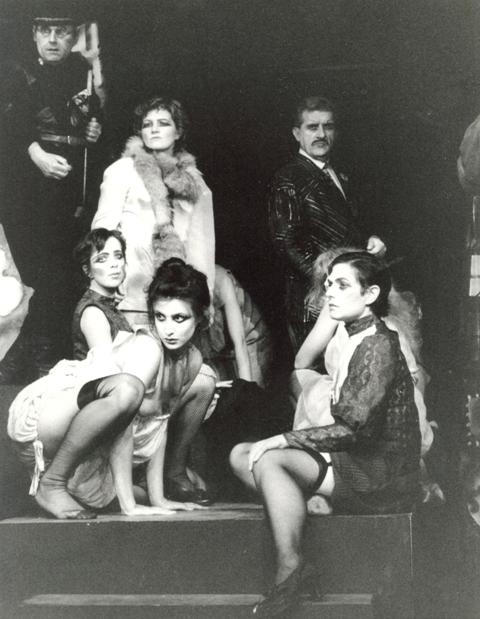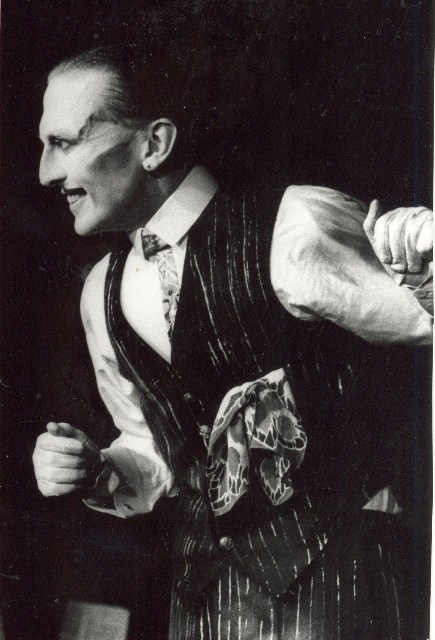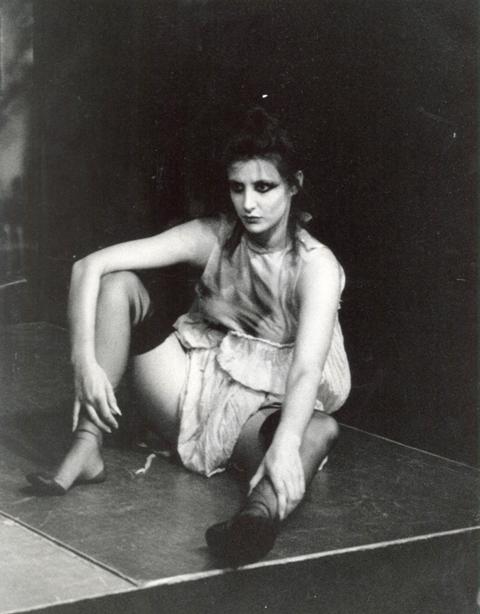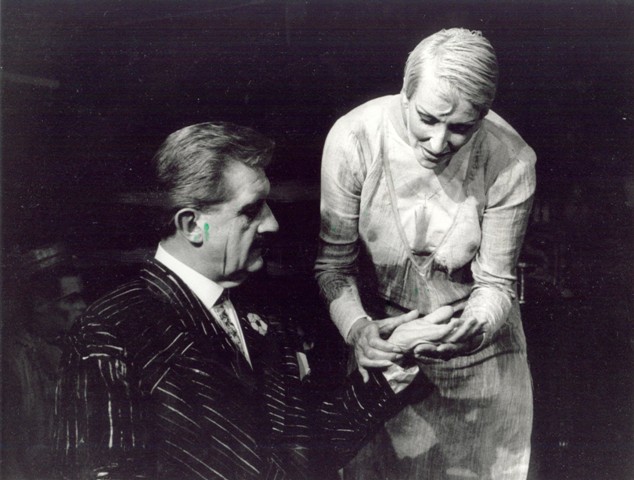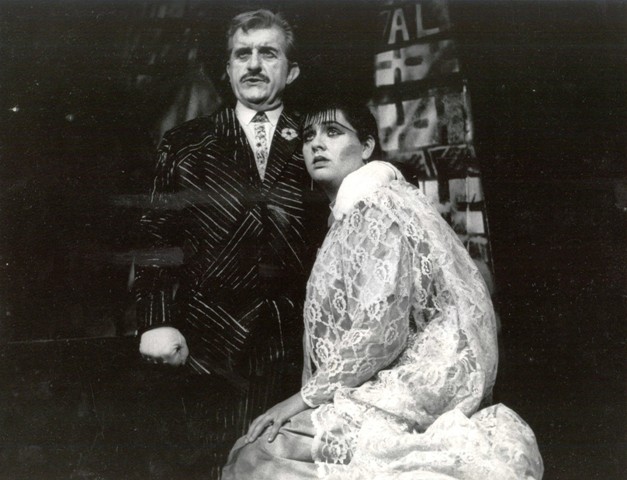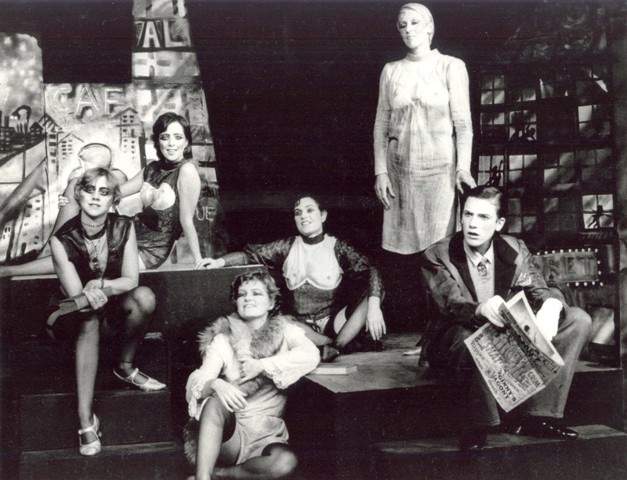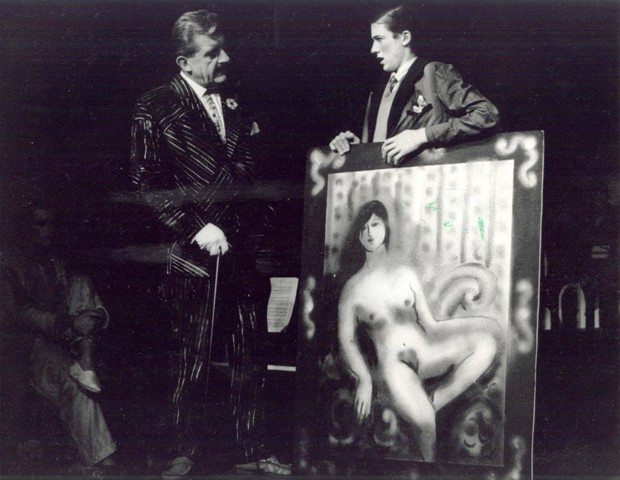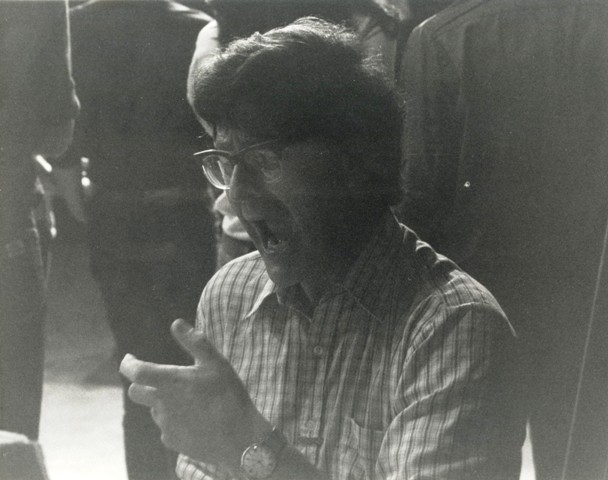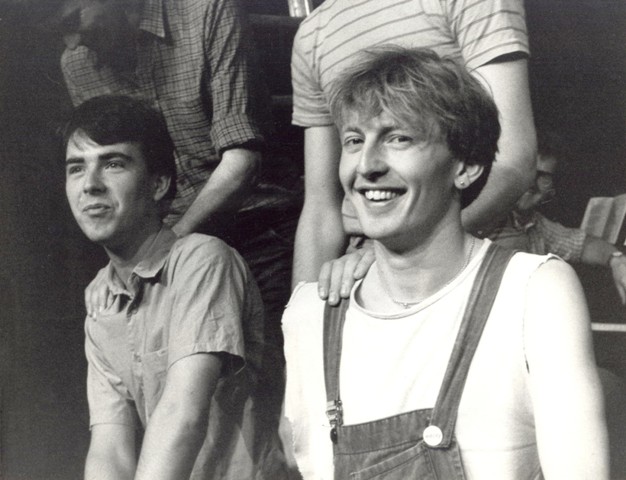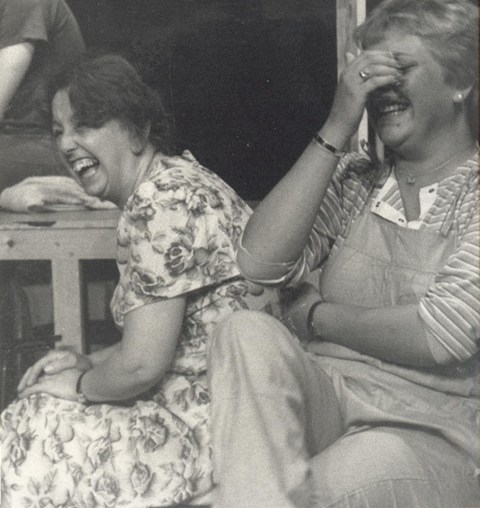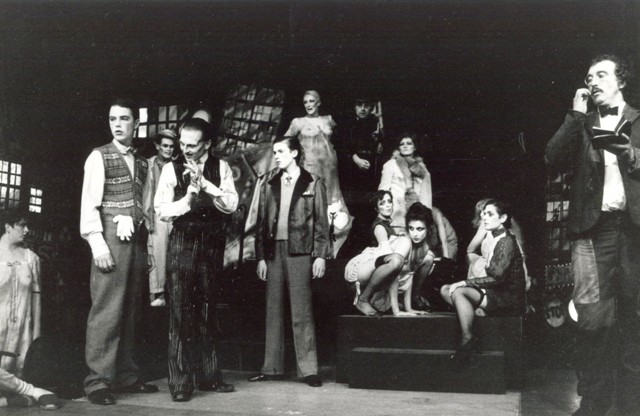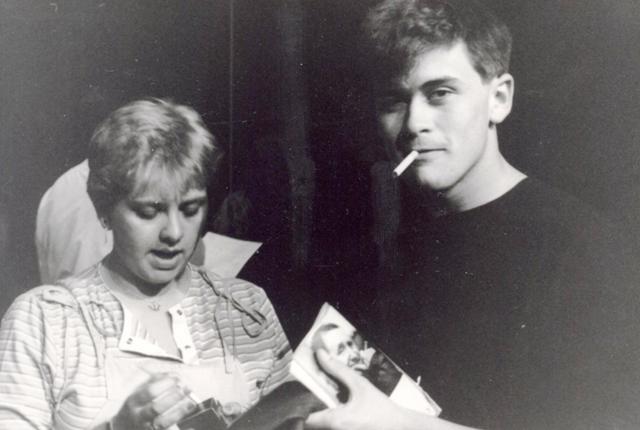The Bench Production
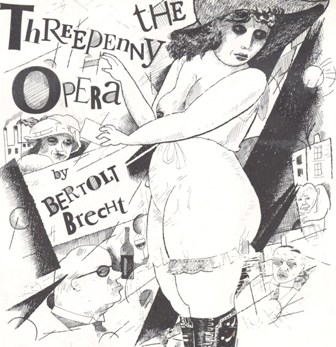
This play was staged at Havant Arts Centre, East Street Havant - Bench Theatre's home since 1977. During the interval and after the show, patrons were invited to look at an exhibition the Bench had set up to run alongside the production. As well as displaying background material to the design of the production itself, there were notes on Brecht, his collaboration with Kurt Weill and Berlin in the 1920s. This exhibition was mounted with the help of Nicola Scadding.
On two evenings after the performance of The Threepenny Opera, as part of a new Bench initiative called Late Night Theatre, a performance of The Yellow Wallpaper was also staged.
Characters
| Mr Peachum | Peter Corrigan |
| Mrs Peachum | Janet Simpson |
| Polly Peachum | Lezley Picton |
| Filch | Peter Holding |
| Five Beggars | Gary Mitchell Stella Benton Jane Hope Gina Cameron Veronica Haste |
| Macheath | Ray Osborne |
| Matthew | David Urquhart |
| Jake | Saul Hewish |
| Bob | Colin Hardy |
| Walt | Jon Philpot |
| Jimmy | Gary Mitchell |
| Commissioner Brown | John Scadding |
| Reverend Kimball | Tony Adams |
| Constable Smith | Peter Holding |
| Constable Jones | Tim Kimber |
| Lucy Brown | Jane Hart |
| Jenny Diver | Penny Cameron |
| Coaxer | Stella Benton |
| Betty | Gina Cameron |
| Nelly | Jude Salmon |
| Dolly | Sylvia Brierley |
| Two Whores | Jane Hope Veronica Haste |
| Narrator | David Dipnall |
| Piano | Paul Mizen |
| Reeds | Ken Alexander |
| Trumpet | Paul Mizen |
| Banjo | Jon Philpot |
| Percussion | George Race |
Crew
| Director | David Penrose |
| Musical Director | Paul Mizen |
| Stage Manager | David Graham |
| Lighting | Paul Francis |
| Costume design | Jacquie Penrose |
| Costumes made by | Jane Hart Jo German Jacquie Penrose Robbie Cattermole |
| Make-up | Craig Morrison David Penrose |
| Singing coach | Isobel D'Arcy |
| Rehearsal pianist | Ruth Prior |
| Properties | Jenny Graham Jo German |
Director's Notes
In 1927 Brecht wanted to write a play about sex and money, and the corruption of human nature that can stem from them both. He wanted it to be provoking, morally educational as well as richly entertaining; one in the eye for a complacent and fashionable Berlin audience, - an audience more used to the lavish operatic stage, gorgeous romantic musicals and spectacularly mounted classics. But not an ignorant audience. Culturally, Berlin between the wars was enormously sophisticated and well informed. They knew the theatre tradition that Brecht would draw from if he turned an existing play in to something else for their entertainment. In taking John Gay's 'The Beggar's Opera' Brecht had motives other than cultural allusion. He believed that in order to keep art contemporary we should not revere its past, but deliberately rework its all too familiar plots and famous scenes into something strikingly new. He had already recycled Marlowe's 'Edward II' and would soon turn to Shakespeare's 'Coriolanus' and Webster's 'The Duchess of Malfi'.
With surprisingly few changes in its structure 'The Beggar's Opera' became 'The Threepenny Opera'. Brecht and John Gay did share similar intentions, however. Gay had written a conscious piece of political satire for a London audience overfed on ornate, Italianate Handelian opera. His Macheath was a portrait of the Prime Minister of the day, Sir Robert Walpole. His audience little expected to see an opera set in a prison instead of on Mount Olympus; and to hear familiar street songs from the untrained voices of actors. The combination proved devastating and 'The Beggar's Opera' was a sensation.
Brecht wanted the same mix; politics and music, - the one harshly critical of bourgeois values; the other seductive, rhythmical and lyrical by turns, irresistible to its audience, this making the desired chemical reaction of content, form and spectator complete. In 1928, at the first performance, Brecht hoped to spring his trap. But he had not bargained for the immensity of his audience's sophistication, the breadth of their decadence. In furs and diamonds they revelled in its perversity, applauded its innovation as nothing more than chic, went home humming its tunes, - and missed the point. Kurt Weill's music became wildly popular as something divorced from the play; a jazzy film version was planned, - Brecht sued, settled out of court and washed his hands of the finished movie. Not until he founded his own actors company, The Berliner Ensemble, in 1949 was the play performed with anything like the author's intended effect.
David Penrose
Brecht's Berlin
Though 'The Threepenny Opera' is set in a vaguely indistinct Victorian London, our production takes its tone from Brecht's Berlin between the wars. Christopher Isherwood, whose portrait of Sally Bowles in 'Goodbye to Berlin' formed the basis of the musical 'Cabaret', has described the city's special attraction then as a self-conscious celebration of the perverse. after 1918, the fall of the monarchy, and the setting up of the Weimar Republic, Berlin caught the desire of Germany's middle classes to escape from the horror and shame of the war into a decadent turmoil of sensual indulgence. Against the background of frantic moneymaking and violent political unrest, the Berliners ostentatiously immersed themselves in a new popular culture. The cinema produced dazzling work from directors like Pabst and Fritz Lang. The theatre world, lead by Max Reinhardt, found a brilliant new range of styles. Classical musicians like Weill explored the new jazz; and, perhaps most symptomatically of all, the nightclubs filled with cabaret, - harsh, brittle, strident and erotic. In all this there was little time spared for social responsibility to the poor; the Depression hit Germany hard and early. Morality was a thing redefined daily in the banks, boardrooms and bordellos of the city; self-respect was sold cheap every night in the bars and tenements. No single artist caught the fractured, hysterical kaleidoscope of Berlin before Hitler better than Brecht's friend and some-time collaborator, George Grosz. It was to his visual style that we first turned in making our production of 'The Threepenny Opera'.
